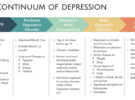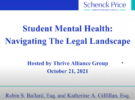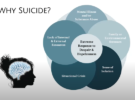In this webinar, learn how to recognize problematic anxiety and depression in school-aged children K-12 as well as strategies and tools to help. Highlights include: • The difference between feeling anxious or depressed and having a disorder • How anxiety and depression impact critical learning capacities • How to identify when a student needs […]






